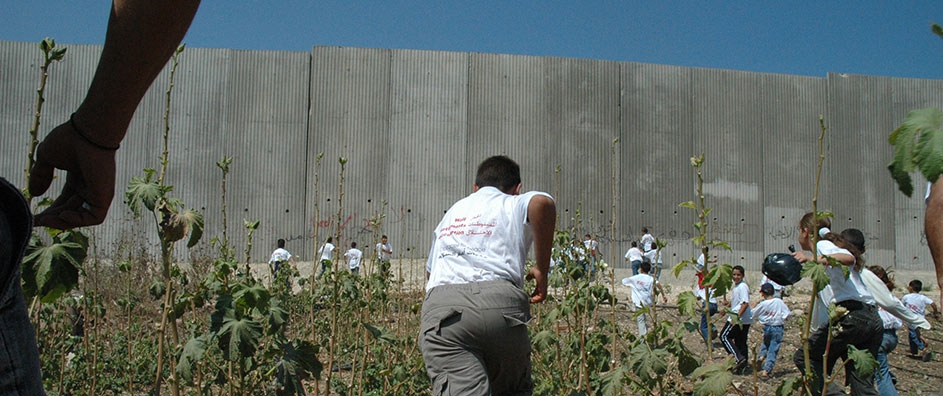The views expressed in our content reflect individual perspectives and do not represent the authoritative views of the Baha'i Faith.
In keeping with present trends, many of our new institutions will also be more global in scope, transcending national boundaries. As the consciousness of our linking with one another and our environment firmly takes hold, we can expect to see the old nation-state as a self-absorbed political entity wither away. -Riane Eisler.
We may have all come on different ships, but we’re in the same boat now. – Martin Luther King Jr.
Since we’re discussing borders, let’s examine the whole idea of citizenship.
Before the concept of citizenship ever occurred to humanity, your relationships were strictly limited to your family, your clan or your tribe. In previous periods of history, you might have been the subject of a ruler or king or a warlord, but that gave you no actual rights of citizenship. The idea of citizenship came about when city-states emerged, and they needed a way to bond people together who weren’t related.

The purpose of the Great Wall of China was to stop the “barbarians” from crossing the northern border of China
When city-states began, they had walls to keep people out. You entered the city through a guarded gate. The whole idea of citizenship grew out of those rock borders around the original gated communities, which created a means of exclusion for the “other,” people somehow defined as less desirable or not fully human—which, at the time, included “barbarians,” women and slaves. The ancient Greeks had a famous saying: “Whoever is not Greek is a barbarian,” which of course meant any foreigner.
In fact, the whole idea of citizenship originated in ancient Greek and Roman times, primarily to differentiate the social status of slave-owners from slaves. In Greece, if you owned slaves it gave you the luxury of lots of free time, which enabled participation in public life, what the Greeks called the polis. If you were wealthy, and male, and the right ethnicity, you took part in the polis, and you qualified as a citizen. Citizenship and the polis relied on a continual state of war—when the highly-militarized city-state waged war on foreigners, it resulted in seized goods and more slaves, which made the citizens richer and more “free.” The city walls protected the ruling classes and slave-owners from the barbarian hordes outside the gates.
Closed national borders today serve the same basic function–they preserve privilege for a select group of people. In today’s increasingly globalizing and unifying world, that cannot last, because ultimately all people belong to one family. While it may seem utopian or risky or untenable to some, most people in the world realize that sooner or later the tyranny of the rule of nations must come to an end.
So what would preserve our allegiances to our native countries, and at the same time build, encourage and solidify a sense of international citizenship in humanity? What could induce us, as citizens of specific nation-states today, to become citizens of the world tomorrow? What might allow us to keep some of the reassuring patriotic feelings we have for our respective flags, while hoisting and pledging allegiance to a single new flag that represented the entire globe?
The Baha’i teachings have a powerful recommendation:
The love of one’s country, instilled and stressed by the teaching of Islam, as “an element of the Faith of God,” has not, through this declaration, this clarion-call of Baha’u’llah, been either condemned or disparaged. It should not, indeed it cannot, be construed as a repudiation, or regarded in the light of a censure, pronounced against a sane and intelligent patriotism, nor does it seek to undermine the allegiance and loyalty of any individual to his country, nor does it conflict with the legitimate aspirations, rights, and duties of any individual state or nation. All it does imply and proclaim is the insufficiency of patriotism, in view of the fundamental changes effected in the economic life of society and the interdependence of the nations, and as the consequence of the contraction of the world, through the revolution in the means of transportation and communication — conditions that did not and could not exist either in the days of Jesus Christ or of Muhammad. It calls for a wider loyalty, which should not, and indeed does not, conflict with lesser loyalties. It instills a love which, in view of its scope, must include and not exclude the love of one’s own country. It lays, through this loyalty which it inspires, and this love which it infuses, the only foundation on which the concept of world citizenship can thrive, and the structure of world unification can rest. It does insist, however, on the subordination of national considerations and particularistic interests to the imperative and paramount claims of humanity as a whole, inasmuch as in a world of interdependent nations and peoples the advantage of the part is best to be reached by the advantage of the whole. – Shoghi Effendi, The Promised Day is Come, p. 122.
















Comments
Sign in or create an account
Continue with Googleor